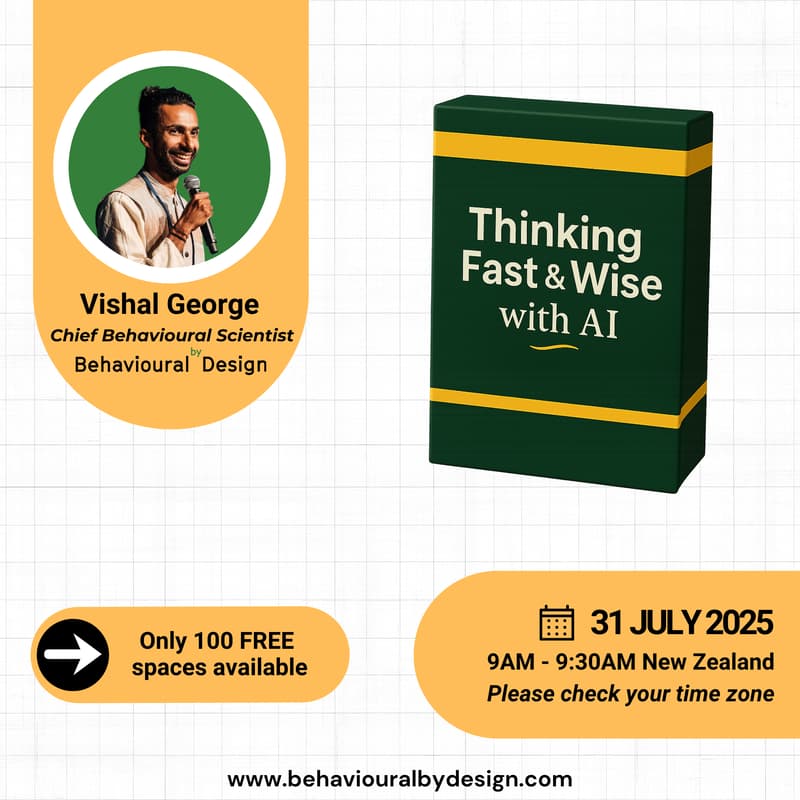

Thinking Fast & Wise with AI
Don't ask AI to think for you. Invite AI to think with you.
Most people use AI like a faster search engine. They ask it to summarise reports, draft emails, or spit out content sounding like every other person using AI.
I've been experimenting with a different approach to prompting. What if instead of asking AI to think for us, we invited it to think alongside us?
I believe this is how humans can expand our minds 🧠 You will see how thinking with AI using these cards helps surface ideas we'd never reach on our own.
Over the last 3 months, I've developed a set of evidence-based prompt cards that transforms human interactions with AI. Instead of getting generic outputs, you get creative thinking that builds on research from neural networks, behavioural science, design, machine learning and the science of creativity.
In this free 30-minute session, I'll share my three favourite prompts for divergent thinking with you.
👥 Who It’s For
You're a purpose-driven leader, consultant, designer, researcher, strategist, or just a curious human who wants to use AI for deeper thinking, not just faster output.
💡 What You’ll Walk Away With
✅ Thinking Fast & Wise (soft launching the card game)
Get familiar with the mental models that help us think more clearly, deeply, and wisely with AI
✅ Live ChatGPT Demo
See the subtle but powerful prompts that make the difference between holding the knowledge and unlocking wisdom
✅ 3 x Evidence-Based Prompts
Get the first three prompt cards—based on proven techniques for divergent thinking—to test and apply right away
🎁 Bonus
Participants who join this webinar will get a discount offer to book a private one-to-one AI x behavioural science training with me.
About Your Host
Vishal George
Chief Behavioural Scientist, Behavioural by Design (Former Head of Behavioural Science, Ogilvy NZ)
My work blends behavioural science, design, AI, neuroscience and systems thinking to help purpose-driven leaders create meaningful change.
A few examples of what my work involves:
(1) Building capability across a large New Zealand bank to become comfortable and confident in applying behavioural science at scale to enhance financial wellbeing; (2) Running experiments with a government agency motivating businesses to reduce their carbon footprint and; (3) Equipping a technology start-up with behavioural design frameworks to enhance safety of truck drivers.
For more information - www.behaviouralbydesign.com